Michael Kelly is still fighting.
After waging—and winning—an epic battle with COVID-19 in spring 2020, Kelly is now focused on his recovery and preventing a second infection.
But getting back on his feet has been challenging.
Once intimidated by what he described as wealthy, better-educated clients of his carpeting business, Kelly, 64, says he feels he’s on equal footing with the world today. During his recovery from COVID, he said, he realized that regardless of wealth, education or status, everyone has the same allotted 24 hours to live each day. He says what counts for him now is how he chooses to live those 24 hours.
“Before it was money, money, money, money, money,” he says. “Anybody who thinks that money will make them happy never had any. Things that I valued so much before the COVID virus definitely don’t have that same value. My perspective has changed.”
In his split-level East Hartford home, Kelly lives with Mocha, a 10-year-old pit bull, and Bentley, an 11-year-old yellow Labrador retriever. Friendly and gentle—like their owner—the aging canines adore Kelly.
Kelly says the dogs bring him “unlimited joy.”
“I would recommend anyone recovering from the coronavirus to have a dog or some pet of some sort,” he says, leaning his 5-foot-11, 245-pound body back in his chair.
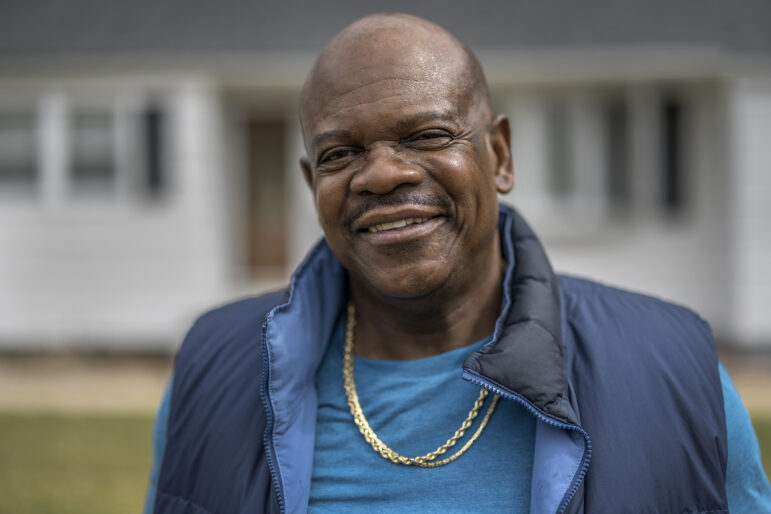
Patrick Raycraft Photo.
“Things that I valued so much before the COVID virus definitely don’t have that same value. My perspective has changed.”
“I find myself spending a lot of time by myself and being too OK with that,” says Kelly, who lost his wife Crystal, 58, to throat cancer in 2017. “I noticed that I have to work very hard on my social skills. I was very sociable before the COVID virus.”
Kelly, who was among the first wave of COVID-19 patients in Connecticut, has lingering health issues.
“I noticed since the COVID-19 that I feel like I lost years off my life,” he says. “I have some challenges. My body seems very fragile. So, I pay more attention to my health now than I ever did in order to stay functional.”
No Symptoms
In late February 2020, Kelly traveled to Las Vegas for a weekend of Chicago-style stepping, a form of dance. Then, back home in Connecticut—and against his daughter’s advice—he attended his monthly dance class in Stamford on Tuesday, March 10. At that time, Fairfield County had the highest number of COVID cases in the state. He recalls not feeling well and needing to take a break to get fresh air during the class.
“Even while I was dancing there, something just wasn’t right,” Kelly recalls. He had the sniffles and a headache that week, and by Sunday, March 15, he was experiencing shortness of breath and had developed a fever of 100.8 degrees. His daughter Milan, 36, who was living at home, decided to drive her father to the emergency room at Hartford Hospital.
“At this point, things were still so new they didn’t even do a COVID test,” Kelly said.
COVID testing was far less prevalent than today at the beginning of the pandemic. Four days after his ER visit, Kelly received a PCR test prescription from his doctor.
By Saturday, March 21, Kelly’s condition had deteriorated to the point that he had difficulty breathing and was losing his ability to walk. Milan says it was like reliving her mother’s final days in hospice.
“It was eerily familiar. ‘My dad is dying. Something’s wrong,’” she recalls saying to herself as she watched his temperature spike to 106.3 degrees.
“He’s 62 years old, diabetic, a Black male … I just didn’t know what to do,” Milan says. “His body was literally burning.”
His PCR test results had not come back yet. Tylenol wasn’t working to reduce his fever. He struggled to breathe. When he stumbled in the shower, ripped the curtain off the rod and could not stand up on his own, Milan called 911.
As paramedics wearing paper gowns and double masks loaded Kelly into the ambulance, Milan told him she loved him. The paramedics advised Milan against following the ambulance to Hartford Hospital because anyone who was not a patient was not allowed to enter the hospital.
Patrick Raycraft Photo.
Michael Kelly enjoys an evening out with his daughters Milan Kelly, 36, at left, and Maya Kelly 28, at right, at the Holiday Inn in Hartford.
“I’m aware of the health care disparities among people of color, particularly my dad,” who also has heart and kidney disorders, Milan says. “So, the first thing that I screamed from our porch was who’s going to advocate for him? He’s my dad. If I can’t go, who’s going to advocate for him? This is the only parent I have left. Who’s going to speak for him? Who’s going to make sure that he’s getting the level of care that he’s entitled to?”
Milan and her sisters, Maya, 28, and Keosha, 47, would develop a plan of action to ensure they stayed on top of their dad’s condition for the next several weeks.
“You know, I always survived when I was sick, so of course I figure I would survive this one,” Kelly recalls thinking. Before doctors put him on a ventilator, Kelly says, they asked him if he wanted to call anyone. “I had no idea that they were saying, ‘You might not come out of this.’”
When Kelly’s oxygen saturation level dropped to 70%, “They immediately put me on a ventilator. Immediately,” he says. “And then the next thing I remember was I woke up in ICU 11 days later.”
Kelly recalls a pivotal moment while on the ventilator and sedated. He dreamed he encountered deceased family members, including his wife, parents, two brothers and an uncle. They were bathed in bright light and inviting him to join them with warm, welcoming gestures, he says.
“They were all smiling … no one said anything,” he recalls. At that same moment in the dream, Milan, Maya and Keosha appeared off to the side, expressionless, their arms crossed. Kelly knew if he joined his departed loved ones, he would never be able to rejoin his daughters.
“Not one time did I associate it with death,” he says. “I just knew if I went over to that place I would never be back here. It was a transformation for me. Every ounce of energy had to go into saving my life.”
Kelly says that Dr. Jeffrey Laut, his kidney specialist, tells him, “‘Man, you were right there, you were right there. And you turned it around.’ And I believe that was that moment. Even today, when I go see him, the first thing he says is, ‘Man, you were right there. What a miracle.'”
Hospital for Special Care
Kelly was transferred to a dedicated COVID-19 recovery unit at the Hospital for Special Care in New Britain the day he was discharged from Hartford Hospital.
Staff at the Hospital for Special Care helped Kelly relearn to walk and shave, cut his hair, and bathed him.
“They saved my life,” Kelly says. “And when I left there, I was walking on my own and caring for myself.”
He began to lift light weights and walk laps around the hospital wing. A nurse became his dance partner. Milan says her dad charmed the staff. He celebrated his 63rd birthday there.
On April 29, 2020, Kelly was the first patient to be discharged from the Hospital for Special Care’s COVID-19 unit.
“It was a heavy day,” Milan says. Hospital staff lined the hallways, clapping and cheering. A television crew waited to film Kelly leaving the hospital.
In the lobby, Keosha and Milan embraced Kelly. “I felt alive,” Kelly says about his discharge. “I remember getting out of the wheelchair and walking and how accomplished that felt.” Yet, at the same time, he describes having mixed emotions.
“I had this huge anxiety that I didn’t want anyone to see … kind of rushing to my daughter’s car,” he says.
Craving A Whopper
Kelly had lost 30 to 40 pounds, and the warm-up suit that Milan brought to the hospital for him to wear home sagged on his frail body.
“I get in Milan’s car, and she says, ‘Well, Dad, what’s the first thing you want to do?’ And I said I want to go to Burger King and get a Whopper. And that was the first thing I did—went to Burger King and I got a Whopper. It wasn’t as good as I fantasized it would be, but I ate it anyway.”
Then, he says, “I came home, and I sat outside on the porch, and I just absorbed the fresh air and the things I always took for granted, like being able to breathe and watching people drive by in their cars. It was in April, and people were jogging. Those were things that were such a thrill for me. To just see life in motion,” he says.
Kelly says coming home was an emotional rollercoaster. “Your first emotion is anxiety. People are moving. People are talking. People are sharp. People were walking around with masks on. Scared the hell out of me,” he recalls.
Hypervigilant
Today, an at-home COVID testing kit and a thermometer sit on Kelly’s kitchen table. He received both Pfizer vaccinations as well as a booster shot and continues to test positive for COVID-19 antibodies. To err on the side of caution, he gets tested for COVID every few weeks. He takes the temperature of visitors, who must be vaccinated before they are allowed to enter his home.
Kelly says he becomes anxious at the slightest feeling of being sick. After yet another negative test this winter, he and his older brother Archie set off on a road trip to South Carolina, where they grew up, to attend a family funeral. The brothers, who are business associates and best friends, were brought closer by COVID-19, Archie says.
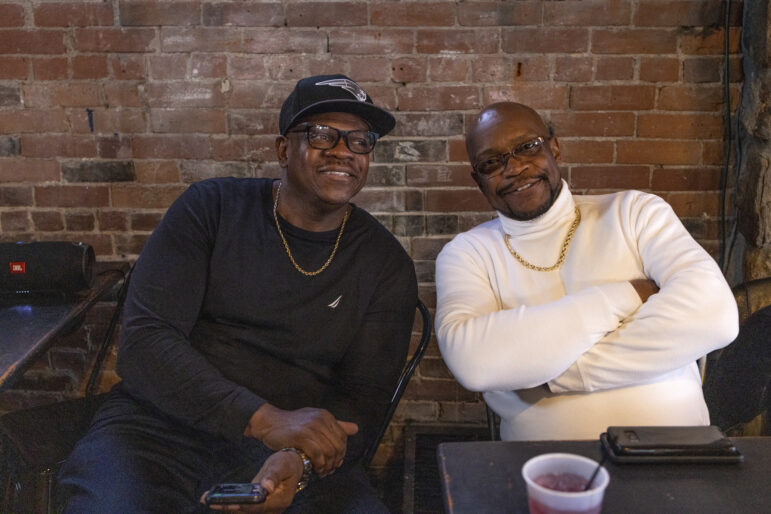
Patrick Raycraft Photo.
Michael Kelly, at left, hangs out with his older brother, business associate and best friend Archie Kelly at Piggy’s Cafe in Hartford.
Archie Kelly says his family has been plagued by several health conditions, including Type 2 diabetes and high blood pressure. The oldest of the five remaining Kelly brothers, Archie believes a poor diet contributed to the adverse health outcomes of his mother and older brothers, who are now deceased.
“In the Black culture and the Southern culture, we didn’t practice healthy eating habits and lifestyle,” he says. After his father died in an accident in 1975, his mother didn’t have the resources to provide healthy meals for seven boys. For example, he says she would use every part of the pig to stretch meals when preparing pork. With a tight household budget, no animal parts were spared. And it was the same with chicken, he adds.
“All we were concerned with was trying to flavor and season it to taste good. Not the fact that this was not healthy,” he says. “Trying to raise seven boys on her own, it was about just a matter of feeding us.”
He believes the toll that poor eating has taken on multiple generations of his family resulted in their medical history of diabetes, heart disease, hypertension and obesity.
“We’re at higher risk now because of COVID. I talk to my children now about some of the health issues so that they can start early enough with preventive measures,” he says.
Data from the Centers for Disease Control and Prevention (CDC) show that racial and ethnic minority groups are disproportionately represented among COVID-19 cases and deaths. The percentage of cases for racial and ethnic minority groups is higher than the percentage of these populations within the total U.S. population. Among people younger than 50 and children younger than 18, a higher percentage of COVID-19 cases are among Hispanic or Latino people compared with the percentage of the total U.S. population.
Statistics show that cases of and deaths from COVID-19 are starkly elevated in poor, minority, and marginalized communities. Long-standing disparities in income, housing, air quality, pre-existing health conditions such as diabetes and heart disease, and access to health care have been laid bare during the pandemic.
Minority communities are also disproportionately affected by a lack of access to health care and health insurance, but that wasn’t the case for Kelly, who had health insurance through his late wife’s employer.
Milan recognizes that many others are not so lucky. “I’m very grateful that we were able to have the means and the support to survive this thing,” she said.
“This has been a long journey, and I’m just getting to a place where I’m starting to dance a little bit again,” Kelly says.
“When my wife passed away, I found Chicago-style stepping. It’s the joy of my life … my newfound way of appreciating life,” says Kelly. He joined the Stamford dance class, where he learned the ballroom swing dance made popular in Chicago in the 1970s. Today he is again comfortable on the dance floor. He looks forward to teaching the dance style to others, including Archie, who embraced dancing after his wife died.
“The light or the spark that my dad has … that’s never changed,” Milan says. “If anything, it seems like it’s brighter. To us, he’s just the best. He’s our hero.”
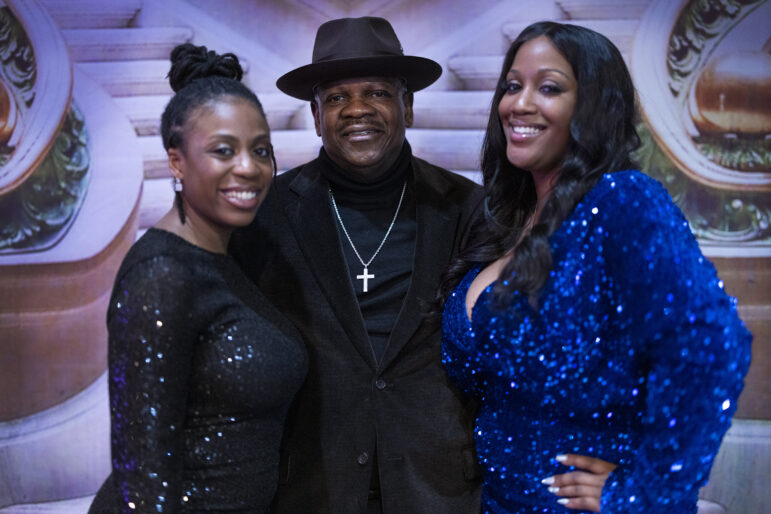
Patrick Raycraft Photo.
Michael Kelly enjoys an evening out with his daughters Maya, left, and Milan, right, at VIBZ Uptown Flava in Hartford.
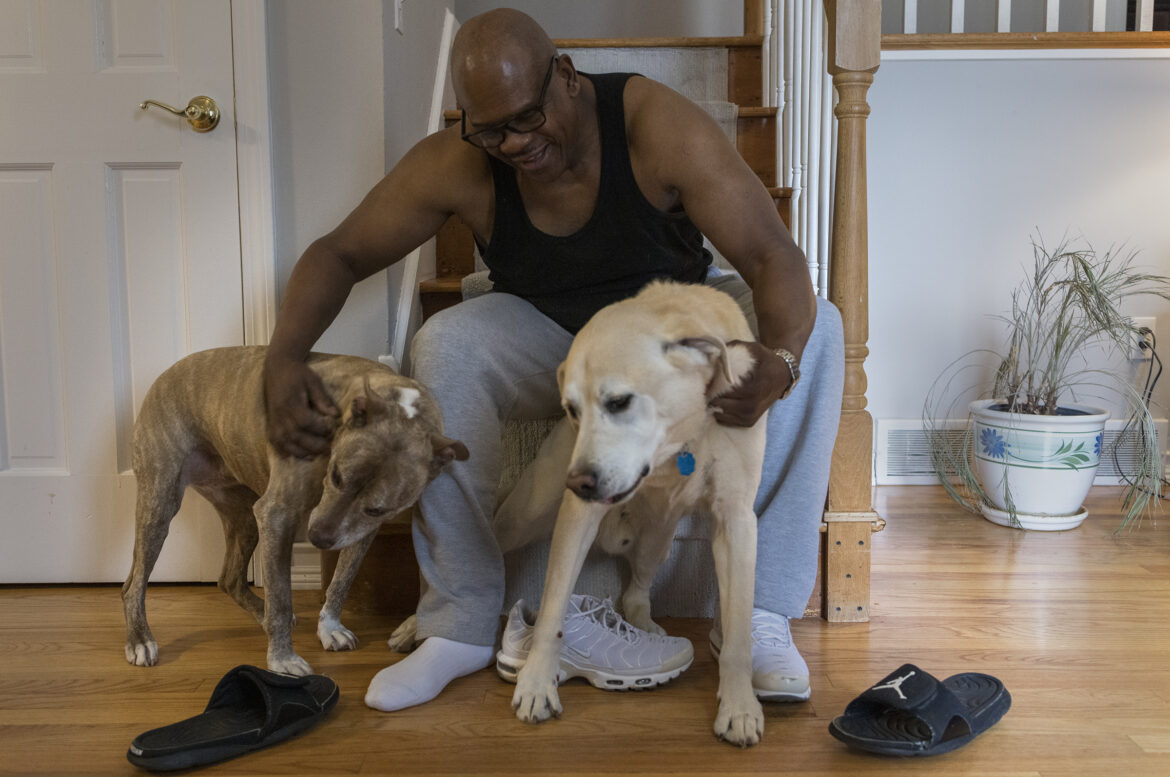
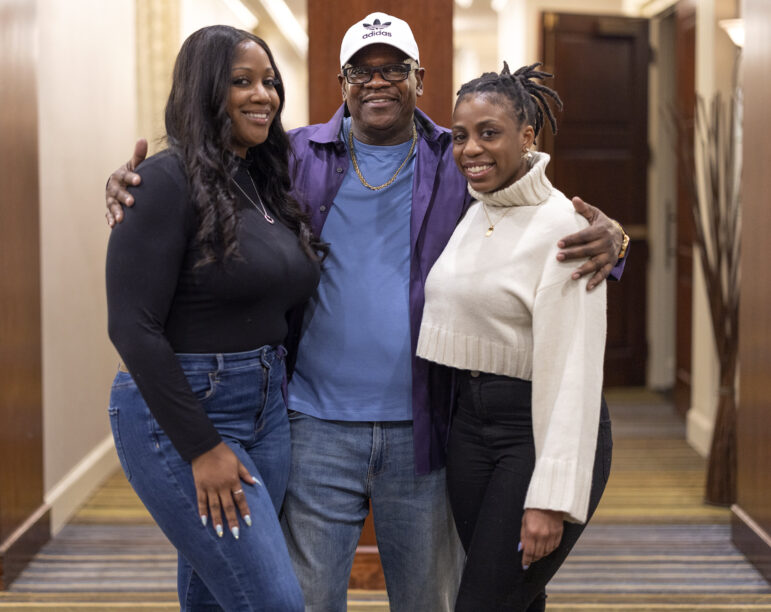
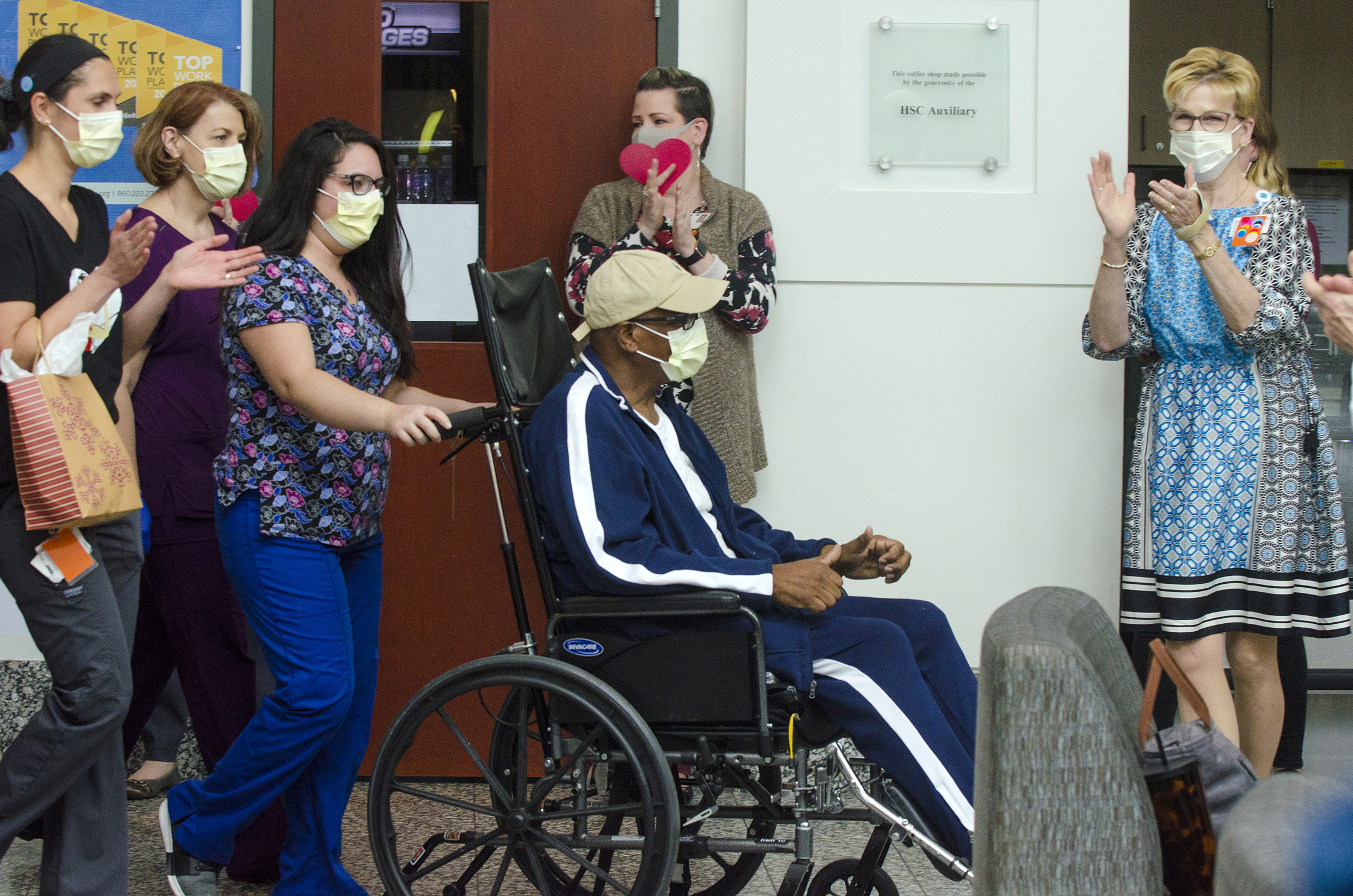
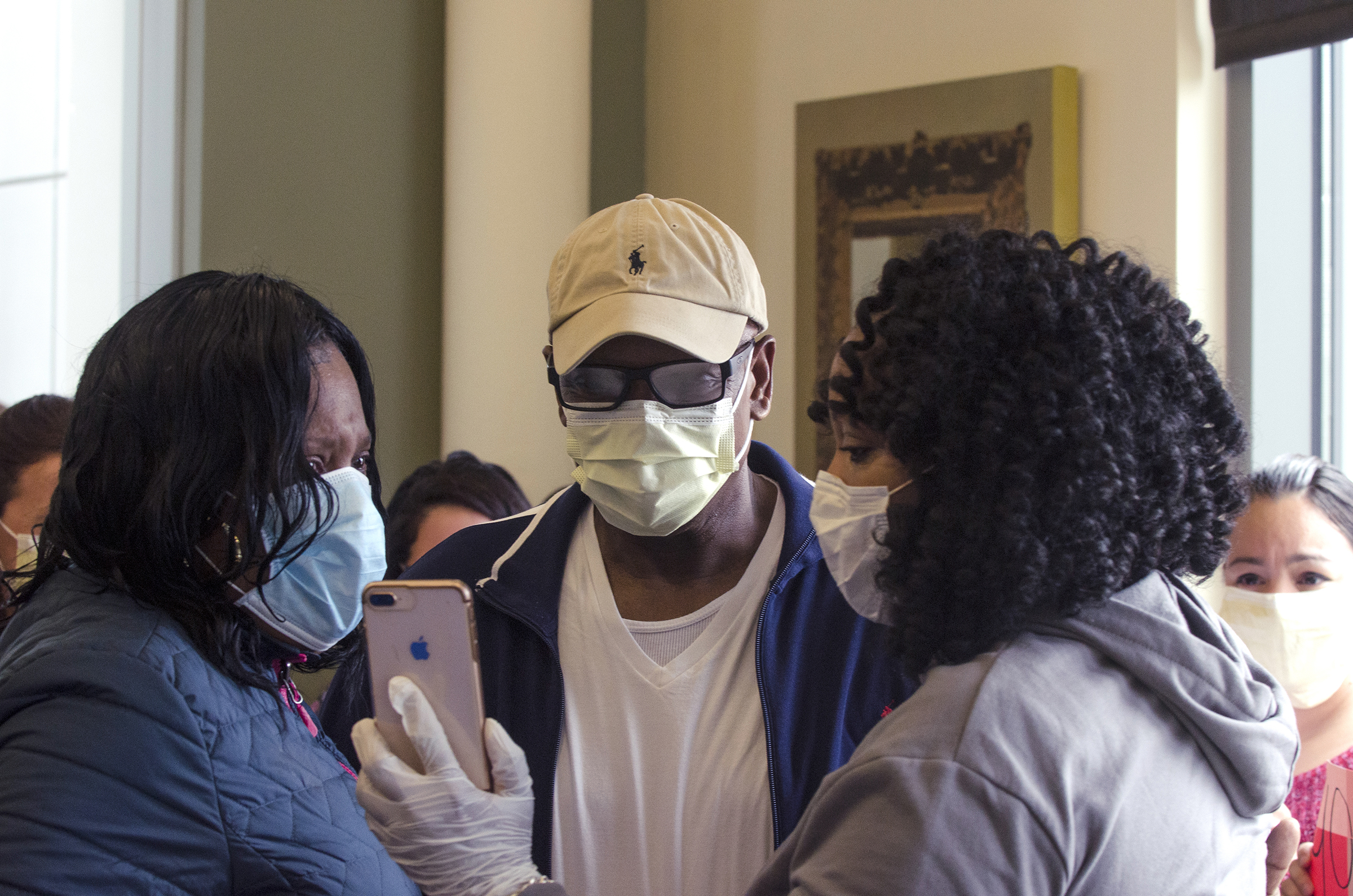
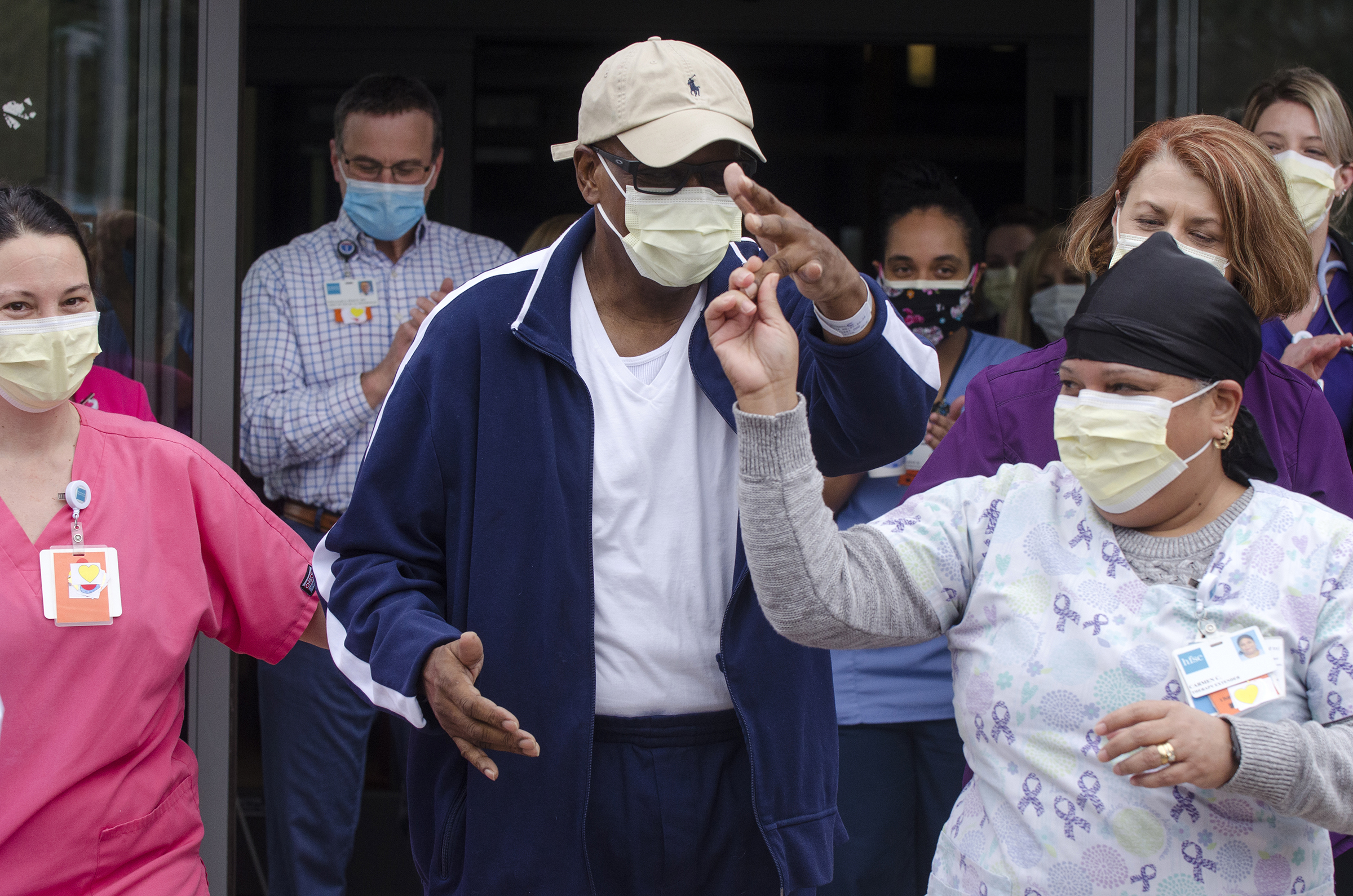
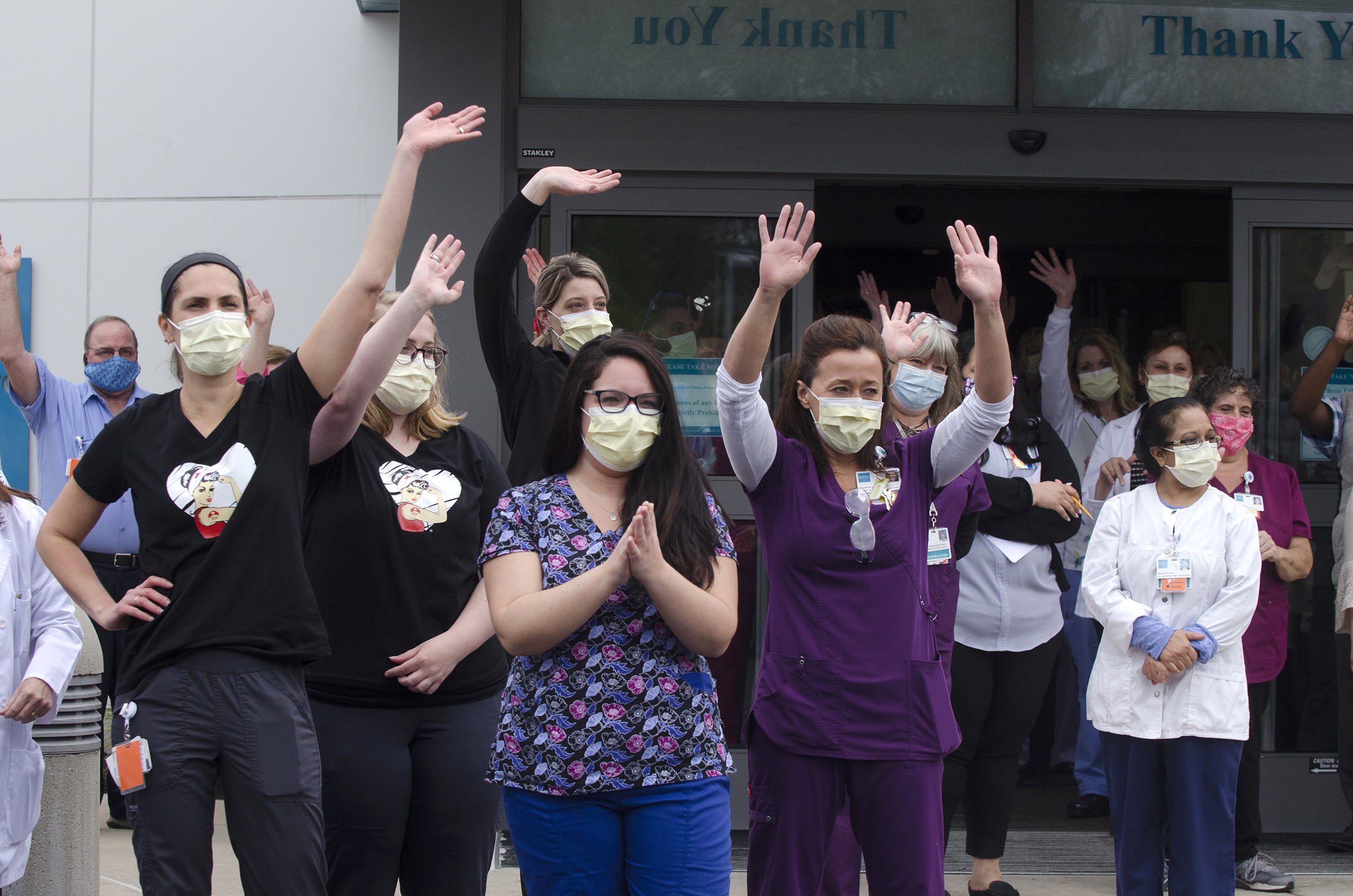
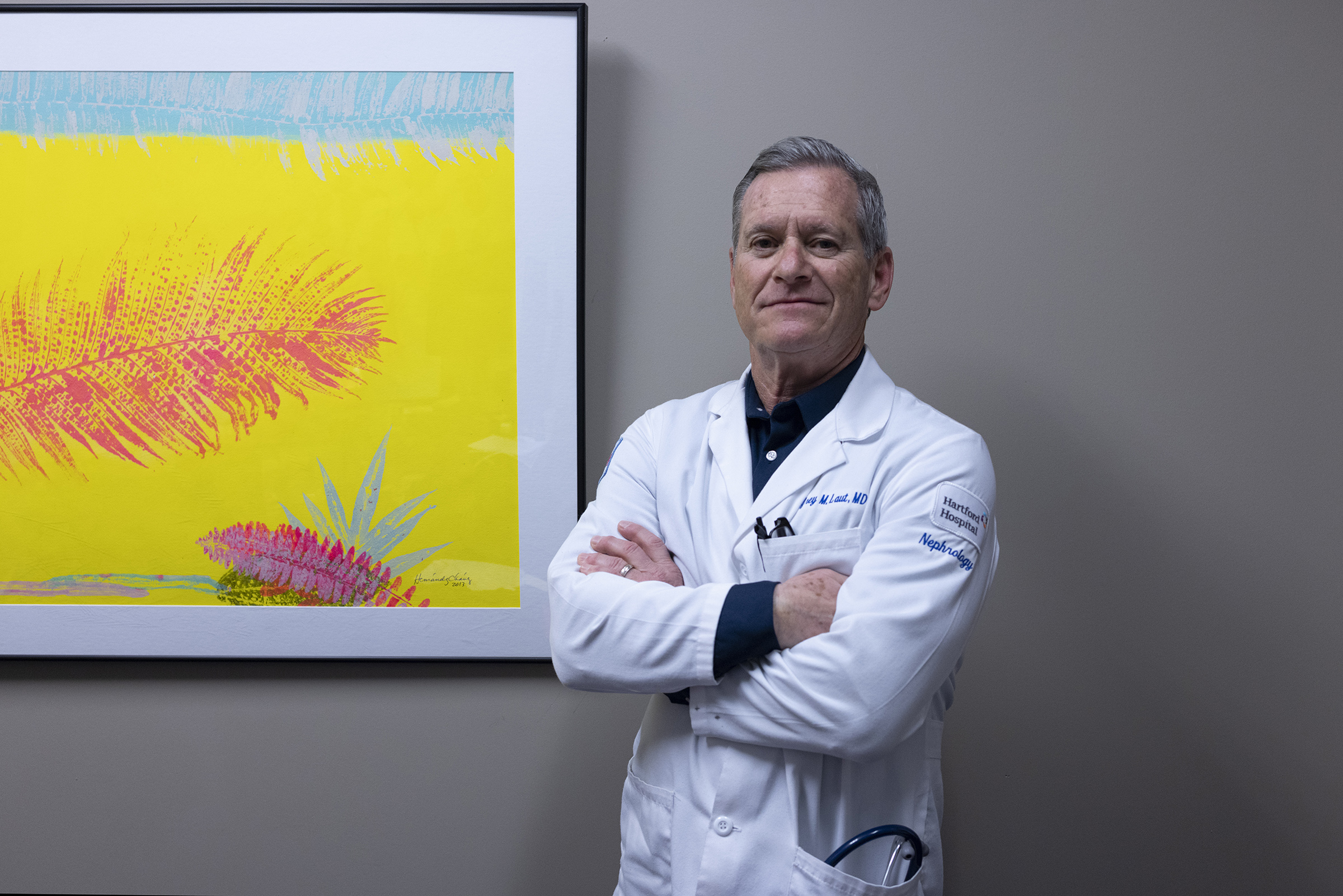
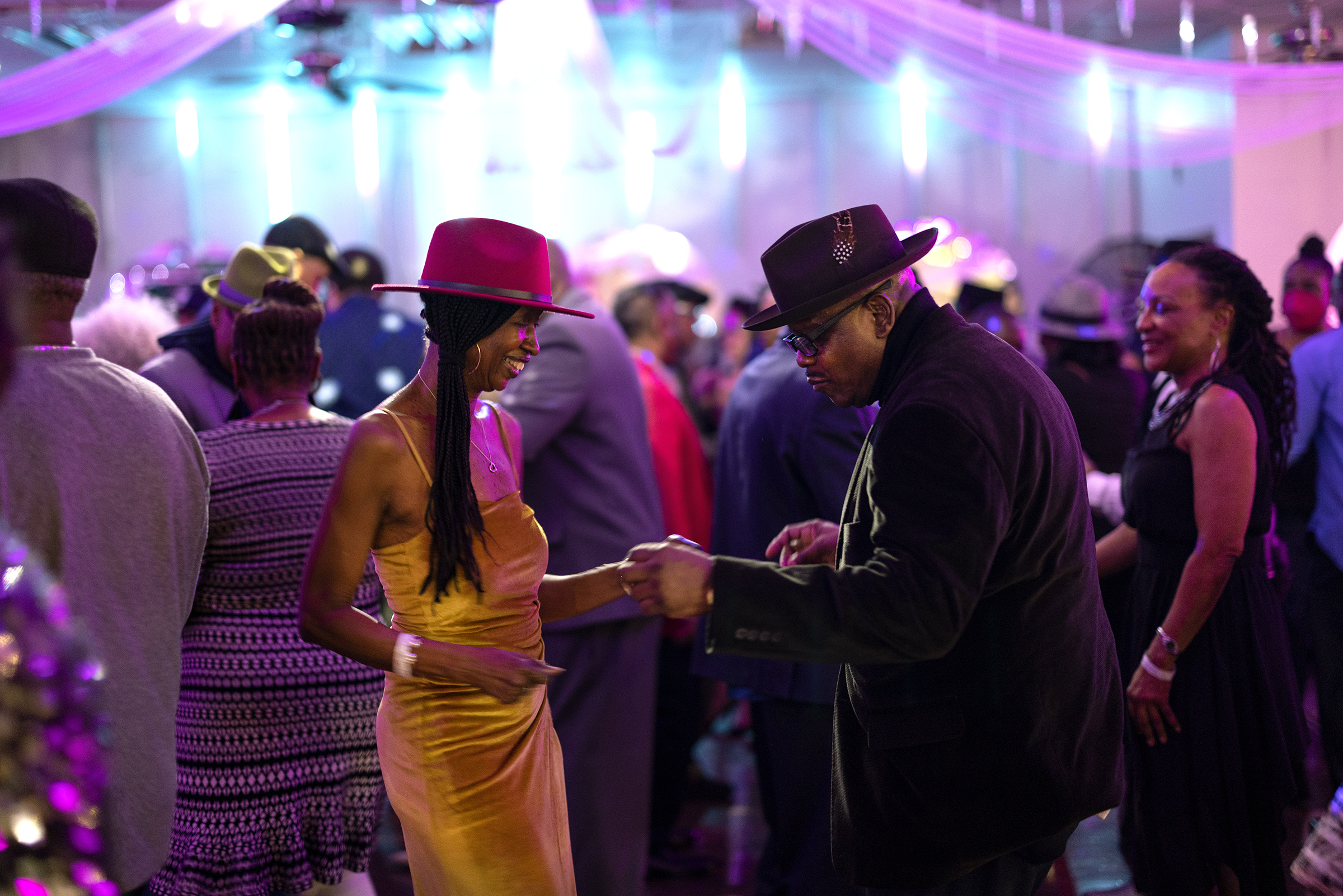
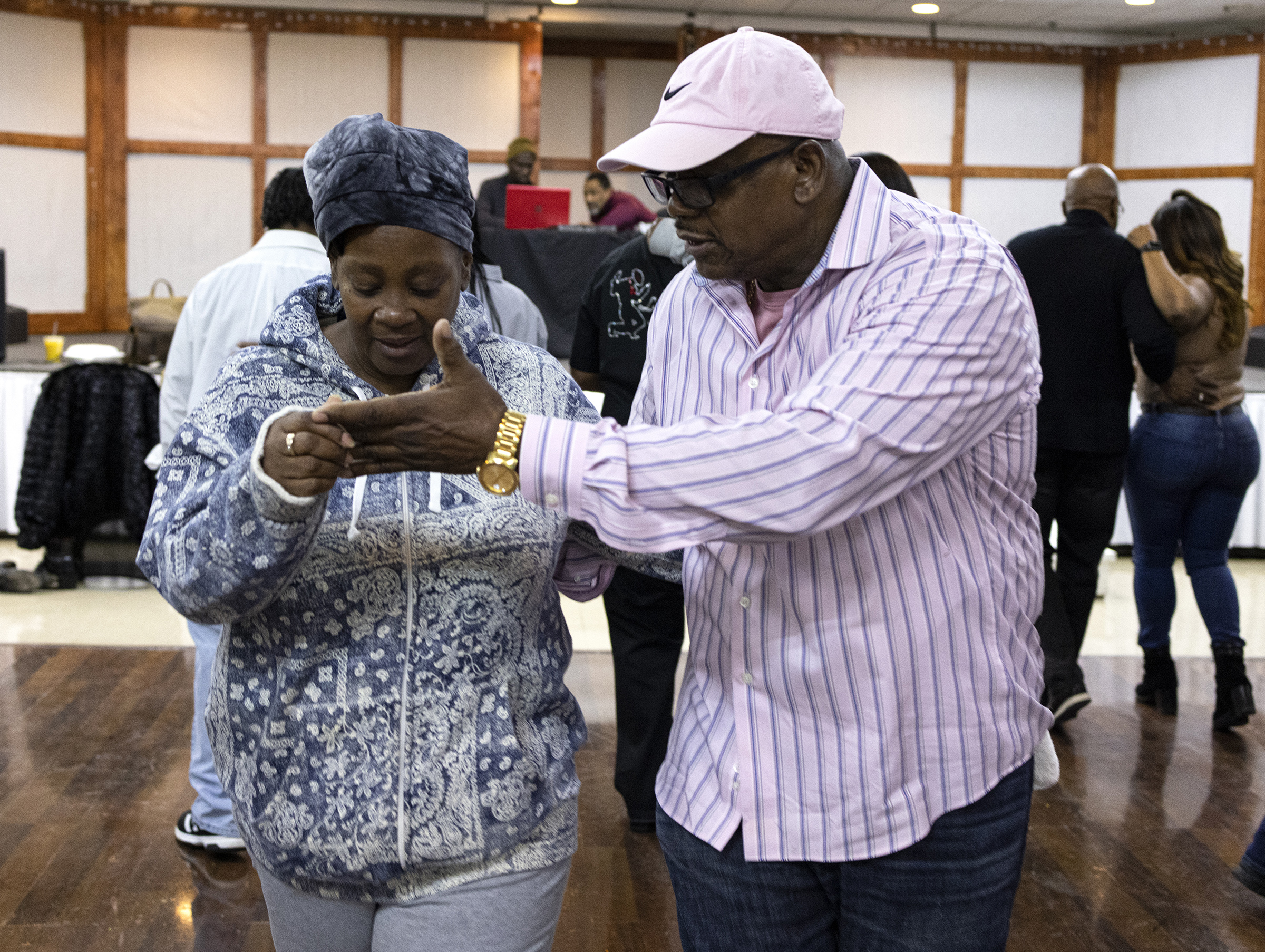
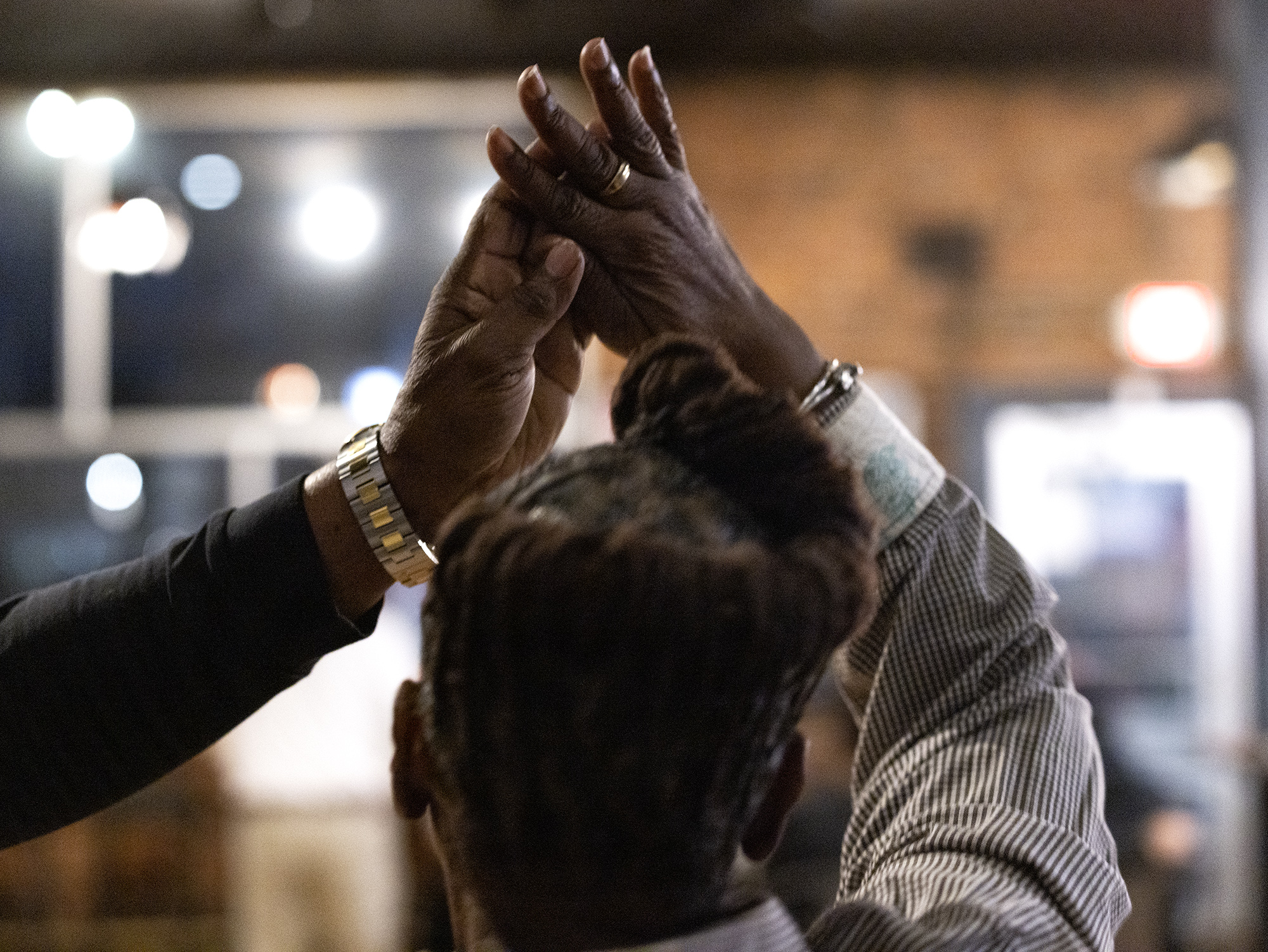
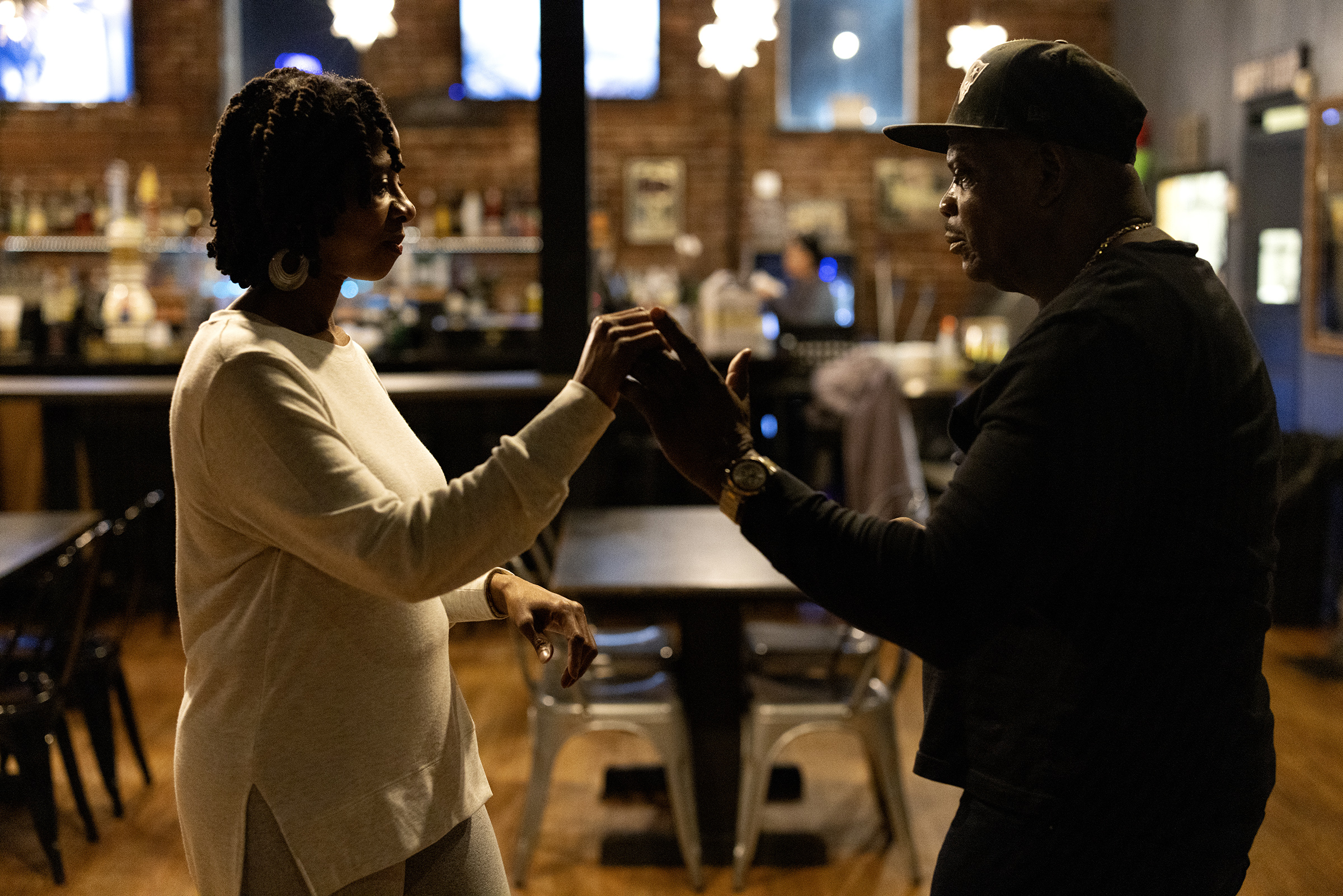
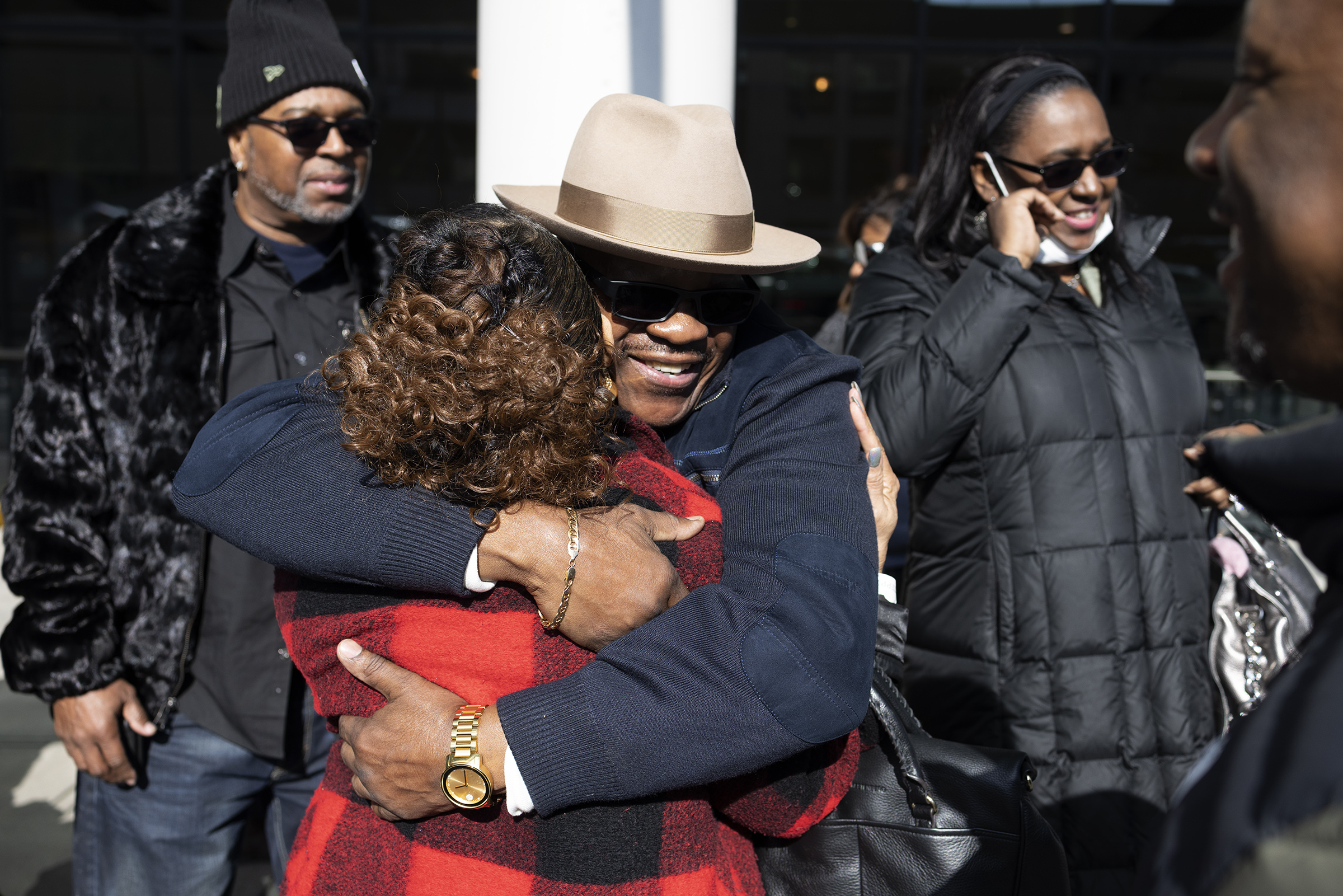
I savor, result in I discovered just what I used to be looking for.
You’ve ended my 4 day long hunt! God Bless you man. Have
a great day. Bye